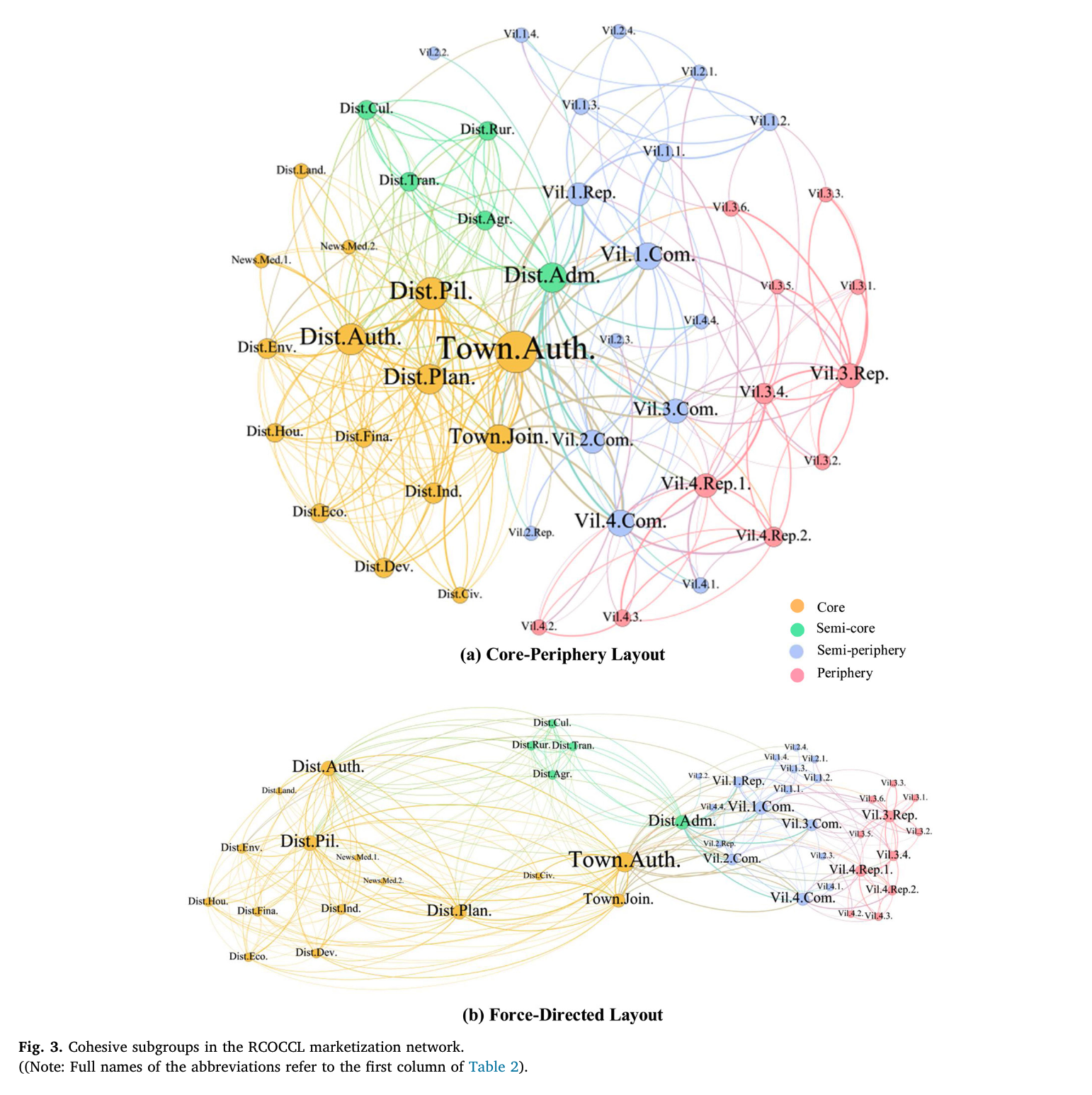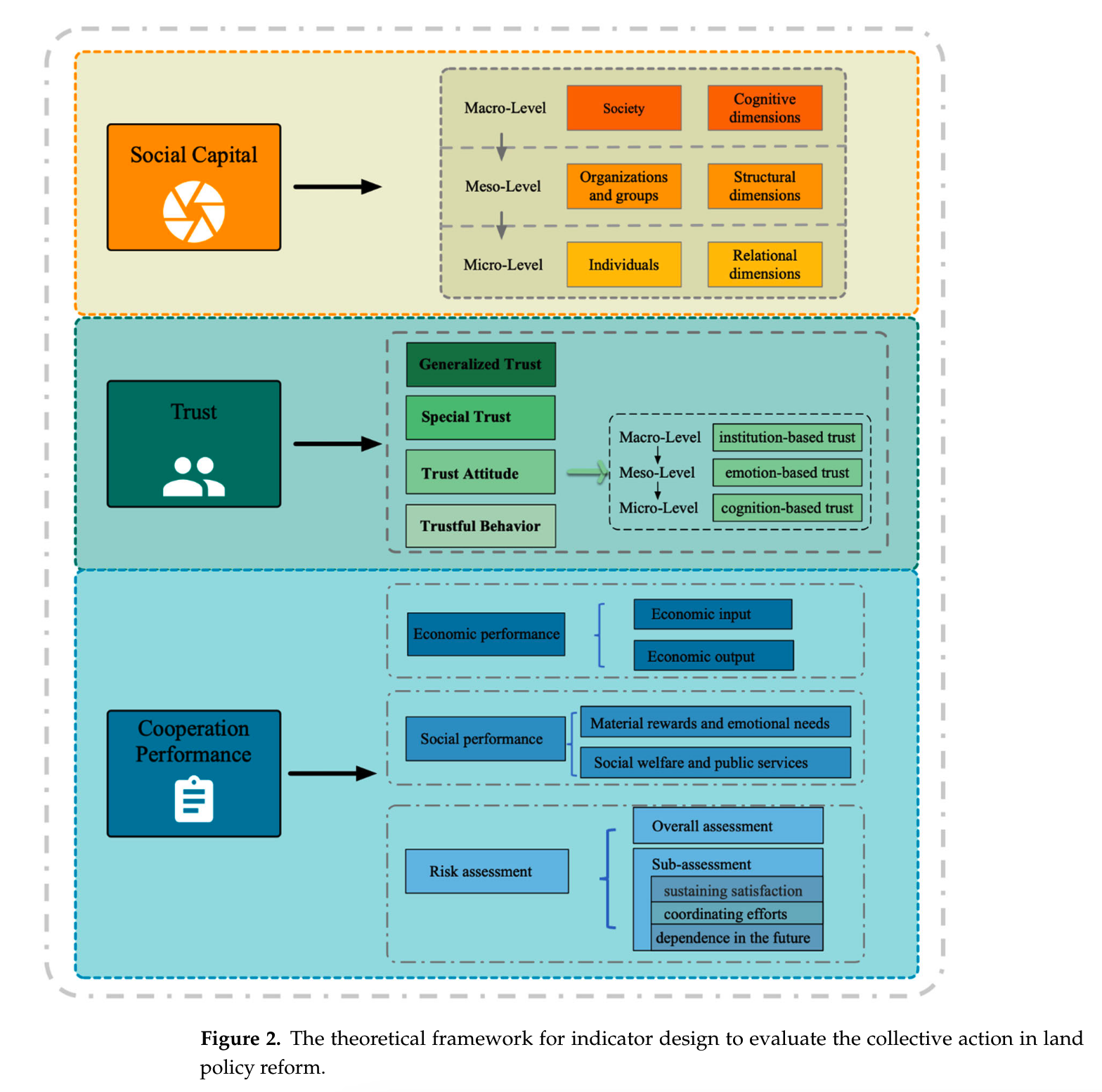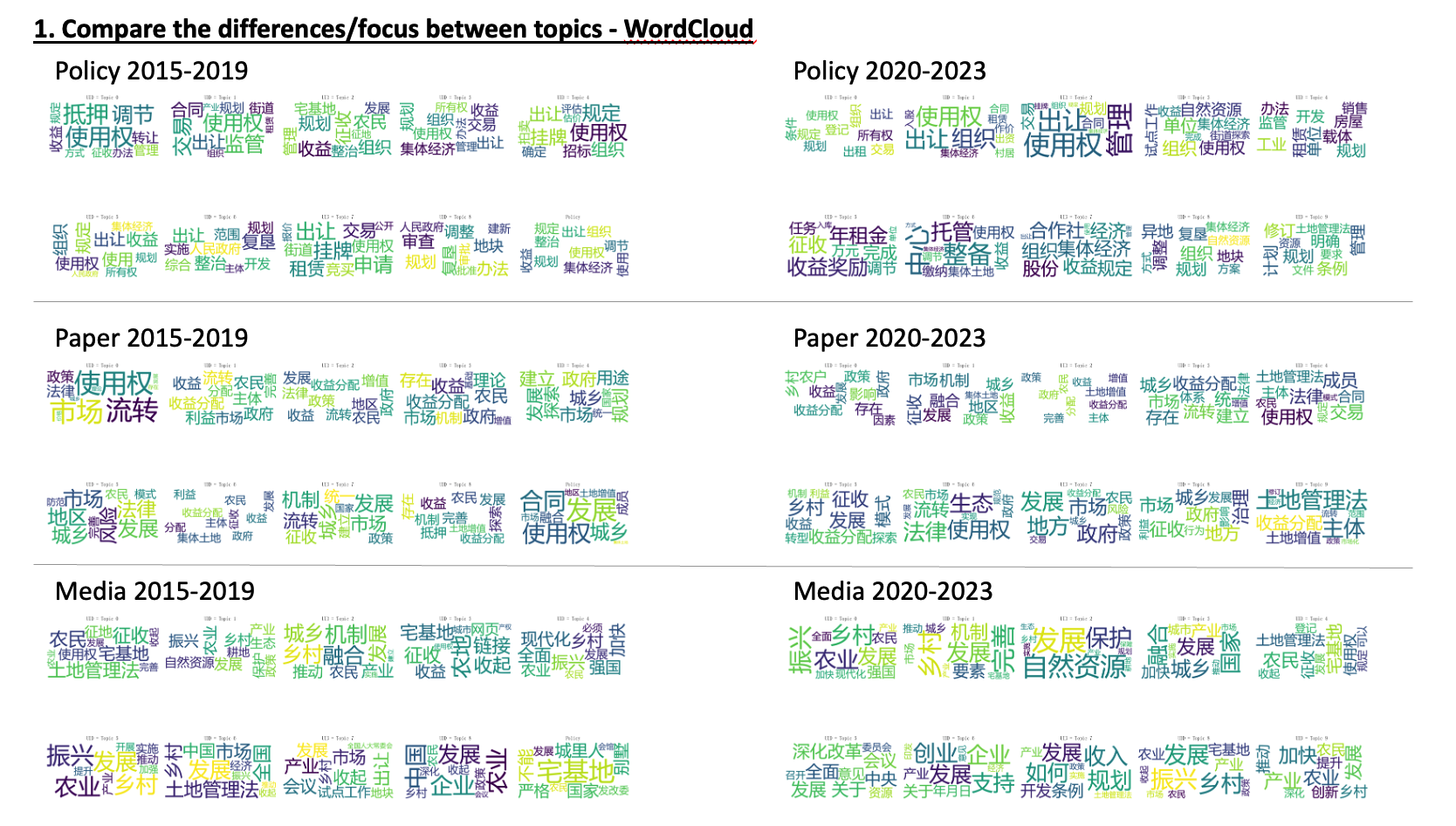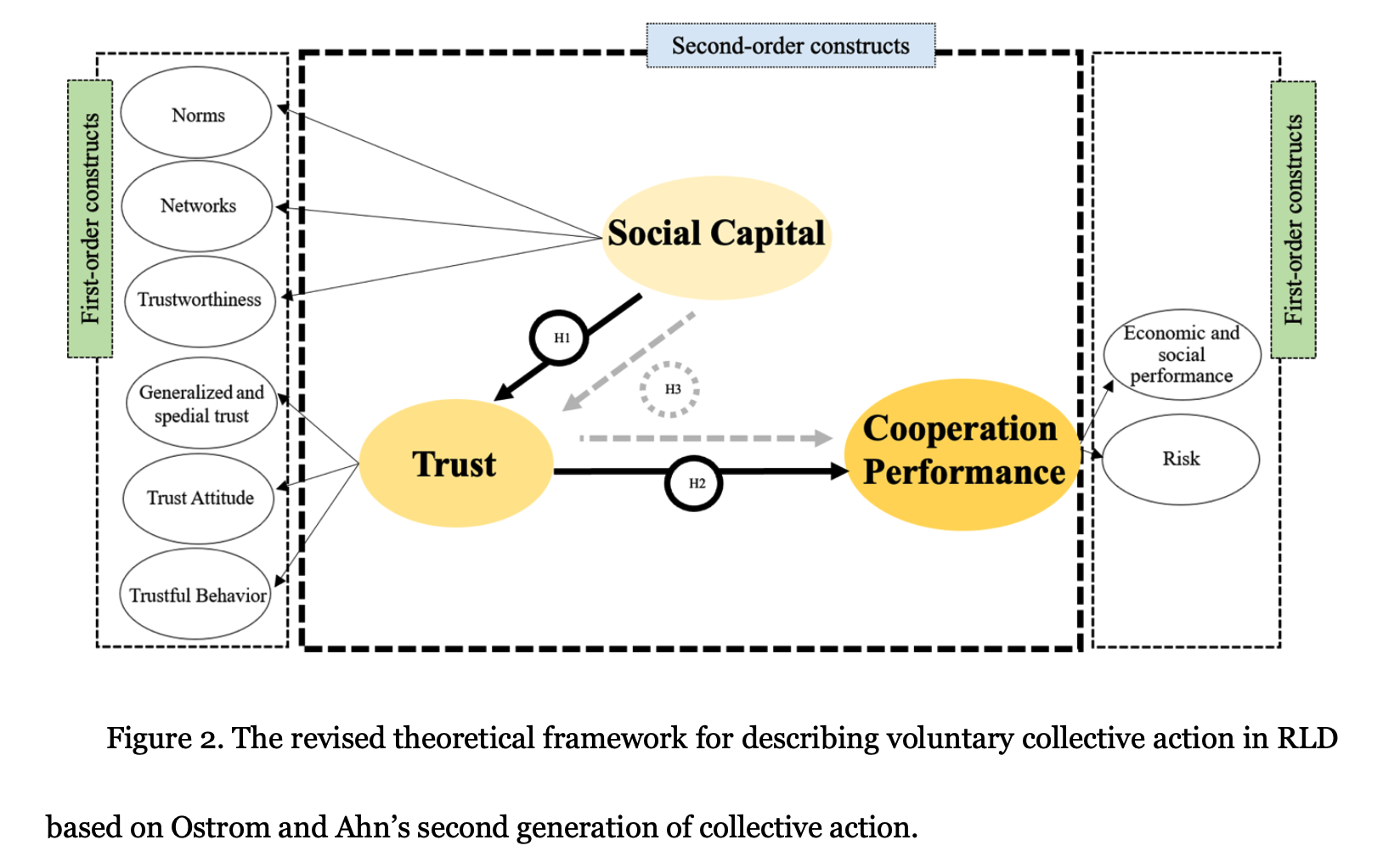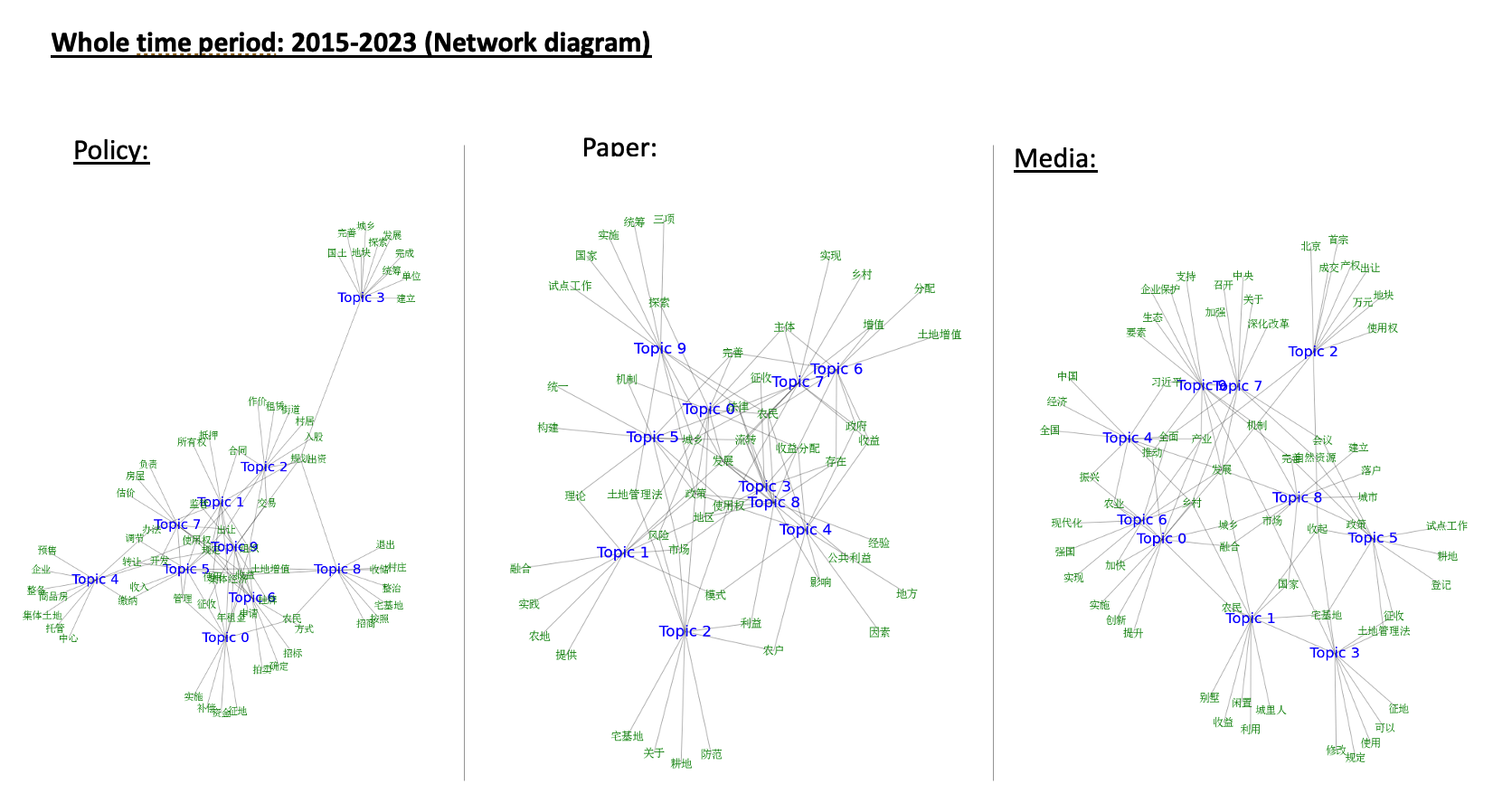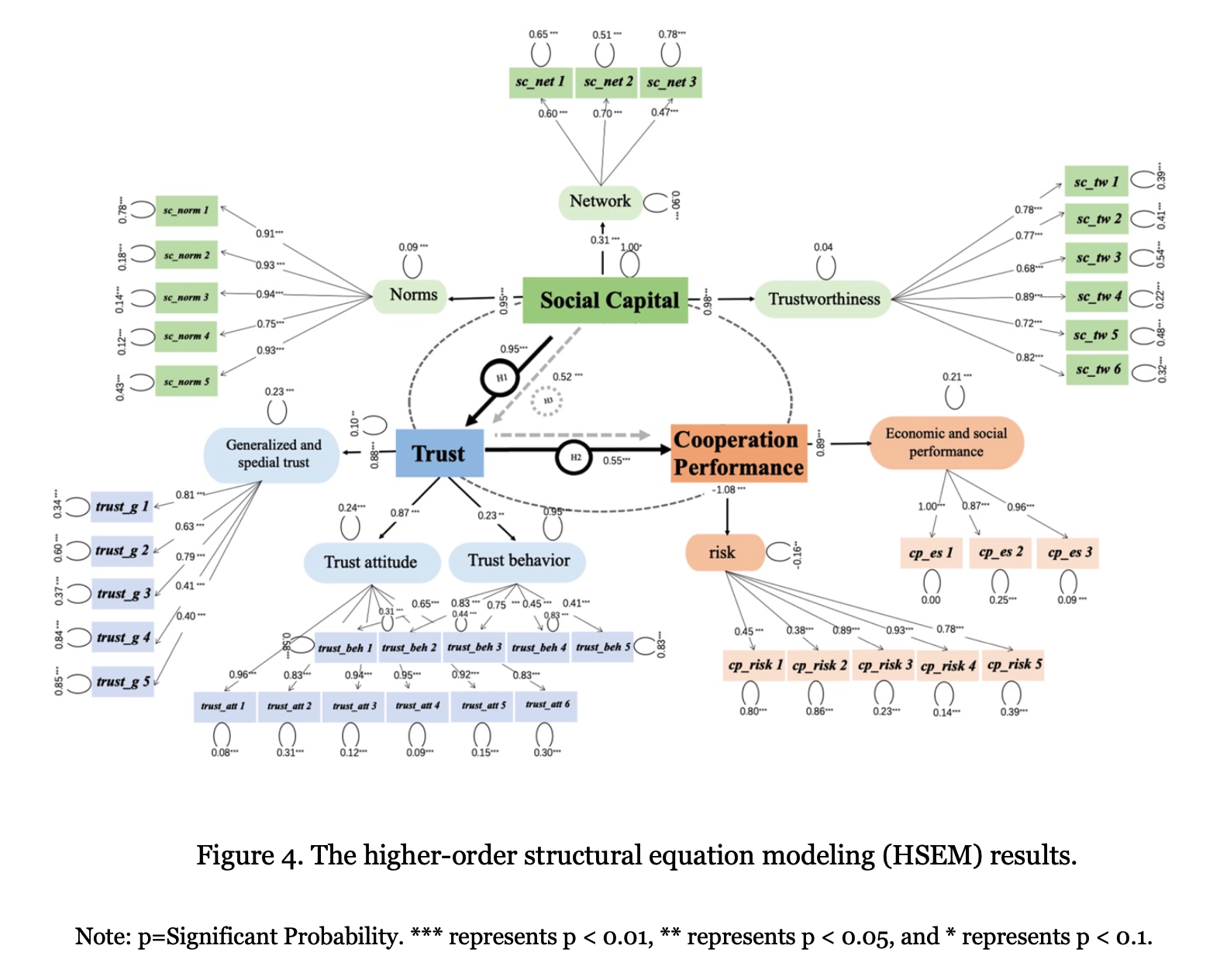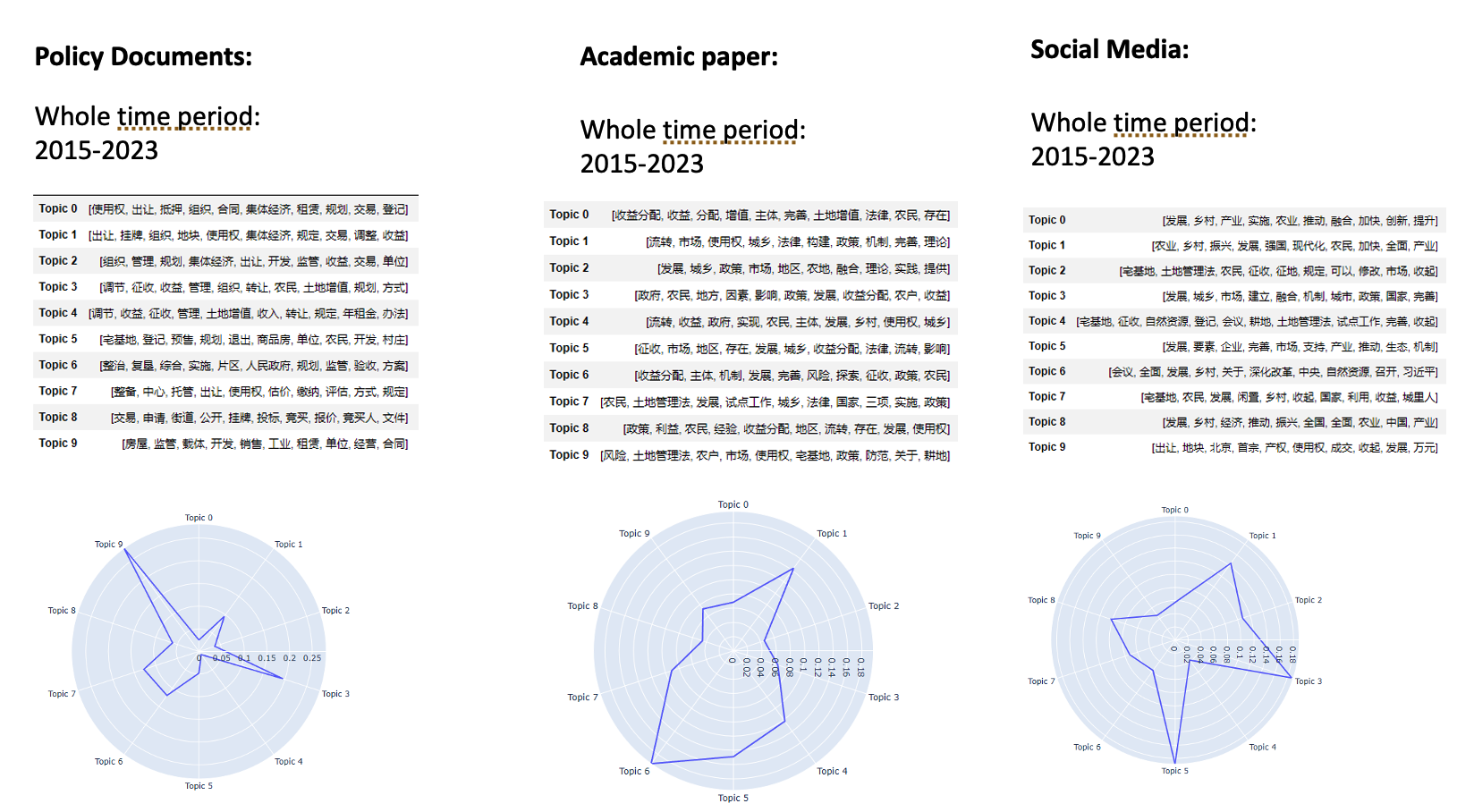Topic 1
Commons Governance and Rural Land Development
Research Question:
This research aims to dissect how stakeholders collectively manage and engage in natural resource governance, concentrating on the full cycle including policy formation, sustainable development, community involvement, and equitable sharing of benefits. It seeks to answer the central question: How can voluntary collective action among stakeholders in rural China be effectively harnessed to promote comprehensive and equitable natural resource management?
My Work:
My research primarily explores the intricate interactions among policy, sustainable development practices, and community engagement in the realm of natural resource management. I focus on analyzing and enhancing the effectiveness of stakeholder partnerships and equitable benefit distribution to foster social balance and sustainability. Special emphasis is placed on addressing the dilemmas of voluntary collective action, which are often exacerbated by hierarchical influences in China, potentially leading to unsustainable resource management, social disparities, and unmet collective objectives.
Research Methods:
The methodologies employed in this research combine qualitative and quantitative analyses to offer a robust understanding of the underlying dynamics and outcomes. This includes:
-
Semi-structured Interviews: Used to understand individual and group perspectives, motivations, and responses to policy initiatives.
-
Statistical Analysis: Applies structural equation modeling (SEM) to explore how social capital and trust affect cooperation among stakeholders.
-
Natural Language Processing (NLP): Analyzes Web Page Big Data from policies, publications, and news to gauge multi-stakeholder perceptions and sentiments about resource management.
-
Machine Learning: Predicts the potential and effects of rural land market entry strategies, using SHAP to enhance the interpretability of the models and provide clear insights into the drivers behind land marketization in rural China.
Several selected studies include:
-
Zhou, L.,de Vries, W.T.,Guo, G., Gao, F., Fang, C.* (2024) The Role of Voluntary Collective Action in Rural Land Sustainable Development. Habitat International, 103121, https://doi.org/10.1016/j.habitatint.2024.103121.
-
Zhou, L.*, Zhou, Y., de Vries, W.T., Liu, Z., Sun, H.(2024) Collective Action Dilemmas of Sustainable Environmental Management: A Case Study on Land Marketization in Rural China. Journal of Cleaner Production, 140872. https://doi.org/10.1016/j.jclepro.2024.140872
-
Zhou, L.*, de Vries, W. T., Panman, A., Gao, F., & Fang, C. (2023). EvaluatingCollective Action for Effective Land Policy Reform in Developing Country Contexts: The Construction and Validation of Dimensions and Indicators. Land, 12(7), 1401. https://doi.org/10.3390/land12071401
-
Zhou, L.*, & de Vries, W. T. (2022). Collective Action for the Market-Based Reform of Land Element in China: The Role of Trust. Land, 11(6), 926. https://doi.org/10.3390/land11060926 (Feature Paper)
-
Zhou, L., Zhang, W.*, Fang, C., Sun, H., & Lin, J. (2020). Actors and network in the marketization of rural collectively-owned commercial construction land (RCOCCL) in China: A pilot case of Langfa, Beijing. Land Use Policy, 99, 104990. https://doi.org/10.1016/j.landusepol.2020.104990
-
Zhou, L., Wang, T.*, Fang, C. Illustrating the Multi-stakeholder Perceptions of Land Policy through Web Page Big Data. (ongoing)
-
Zhou, L.*, Chen, R. Fair Shares in Land Value Redistribution: A Cooperative Game Theory Approach with Empirical Insights from China. (ongoing)
-
Zhou, L., Fang, C.* Exploring the Potential and Fairness of Rural Land Development in China: A Case Study of Henan Province Using Machine Learning and Spatial Analysis. (ongoing)
